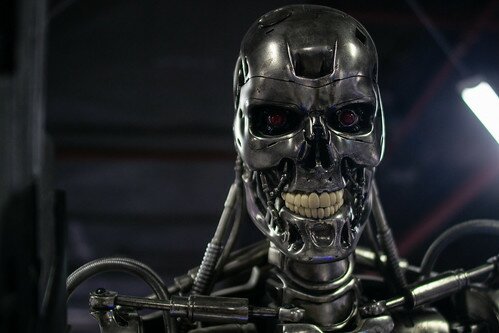Tom Weiss is a retired Army officer with tours in Iraq and Afghanistan. His writing has appeared in professional military journals, PJ Media, and Liberty Island. He splits time between Western Wisconsin and Eastern Australia and is convinced the Minnesota Vikings will never win the Super Bowl.
I had the opportunity to interview this noted writer and discuss a variety of technological trends.
Tamara Wilhite: You split your time between Wisconsin and Australia. Which one do you consider home?
Tom Weiss: As a military brat who served on active duty for over two decades and has never lived in any one place for more than four years, there isn’t one single place I can call home. To me, home is sitting on the veranda next to my partner, sipping a glass of red wine and talking about life.
Tamara Wilhite: What led to your Liberty Island Magazine article series “Australia, Its People and Culture”?
Tom Weiss: When I first came to Australia, I got a lot of questions from people who’d never visited and were only familiar with the continent because of entertainers like Paul Hogan, Steve Irwin, Nicole Kidman or Hugh Jackman. I wanted to dispel a few myths, respond to those questions, and answer a few they should have asked, but didn’t. Australia is an amazing place with a rich culture and a stunning landscape and I also wanted to share a bit of that with the reader as well.
Tamara Wilhite: You’ve written for PJ Media, Liberty Island Magazine and military journals. What are most of your articles about?
Tom Weiss: I’ve always been a writer, and I began by writing for military journals because that was my profession and I wanted to contribute in a positive way. But, my desire was always to write fiction and as I was nearing the end of my military career I decided to write a screenplay about the Iraq War. I’d come up with the basic outline of the story years before, after my first tour in Iraq, but hadn’t found the will to sit down and write it. So I did, and was lucky enough around the same time to find Liberty Island, who agreed to publish it. Much of my writing has a military theme, but I also have a passion for movies and science fiction and find a lot to write about in those areas as well.
Tamara Wilhite: I read a military whitepaper in a publication whose name I can’t remember that cited the “Terminator” franchise as a reason not to remove the human authorization before armed UAVs killed someone. This means we’re very close to automated killbots. Do you think we’ll actually create de facto Terminators?
Tom Weiss: Not in the near future. People like Elon Musk are pessimistic about the future of AI and in the most nightmarish scenarios, something approaching an automated killbot could emerge. But, the military and civilian professionals who design and operate armed UAVs and are working on our combat systems of the future know better than anyone the real consequences of what they do. They probably didn’t need to watch “The Terminator” to know that the decision to kill a human being is one only a human should make. And I don’t see that changing anytime soon.
Tamara Wilhite: Robert Heinlein’s “Starship Troopers” arguably led to the fictional Iron Man and real life exoskeletons being used by the military today. What science fiction tropes do you see on the near horizon?
Tom Weiss: The singularity. Merging humans with computers. Downloading a person’s consciousness into a simulation. We saw perhaps the beginning of this with “The Matrix” trilogy. More recently, shows like “Black Mirror” and “Altered Carbon” have riffed on the same theme. And I’m currently in the process of writing a series dealing with these issues as well.
Tamara Wilhite: What science fiction or horror works do you think best envision the future of military technology?
Tom Weiss: It takes a long time to catch up with science fiction. The exoskeletons of “Starship Troopers” are just starting to be a reality now, 60 years later. We’re not even to a point where the technology in the movie “Aliens”, the best military sci-fi movie of all time, and only thirty years old, is realistic. I’m not much interested in finding novel ways to kill people or break things from a great distance or with the least amount of risk, which is what much of science fiction or horror tries to do. That’s not the purpose of warfare. The real purpose is to force the enemy to bend to your will, and something like deepfake technology can enable a bad actor in the future to create a real, tangible military benefit in the not-too-distant future. Imagine a military unit with the capability to broadcast the voice of an enemy commander giving orders to cease firing, or any other such order that would confer a tactical advantage. The science fiction and horror genres are going to have to catch up with that phenomenon when it starts happening.
Tamara Wilhite: Have you published any fictional works drawing on your expertise?
Tom Weiss: “In the Ashes” is a screenplay, published by Liberty Island, drawing on my experiences in Baghdad from 2006-2008. A long time ago, I had a conversation with a friend of mine about the movie “Platoon.” He told me his father had been in Vietnam, and after seeing the movie had said, “I wish they hadn’t taken all of the most horrific stories about that war and crammed them all together.” I wanted to write a movie that portrayed a more accurate version of the war I experienced.
Tamara Wilhite: What are you working on now?
Tom Weiss: As I mentioned earlier, I’m working on a science fiction series called “The Discorporated,” which is set in the near future and deals with a world that has discovered how to download a person’s consciousness and keep them alive in a simulation. I’m halfway through a three-book series and hope to have them all published by the end of next year.
****
Also check out Tom Weiss’s new podcast review of “Raven 23: Preparing for a Pardon.”
Photo by dmoberhaus 



Comments
Leave a Reply